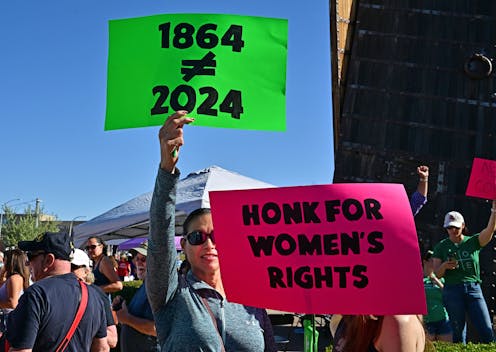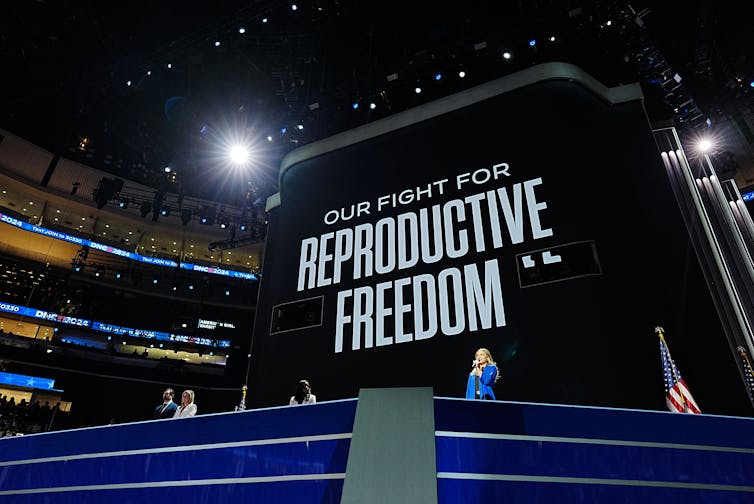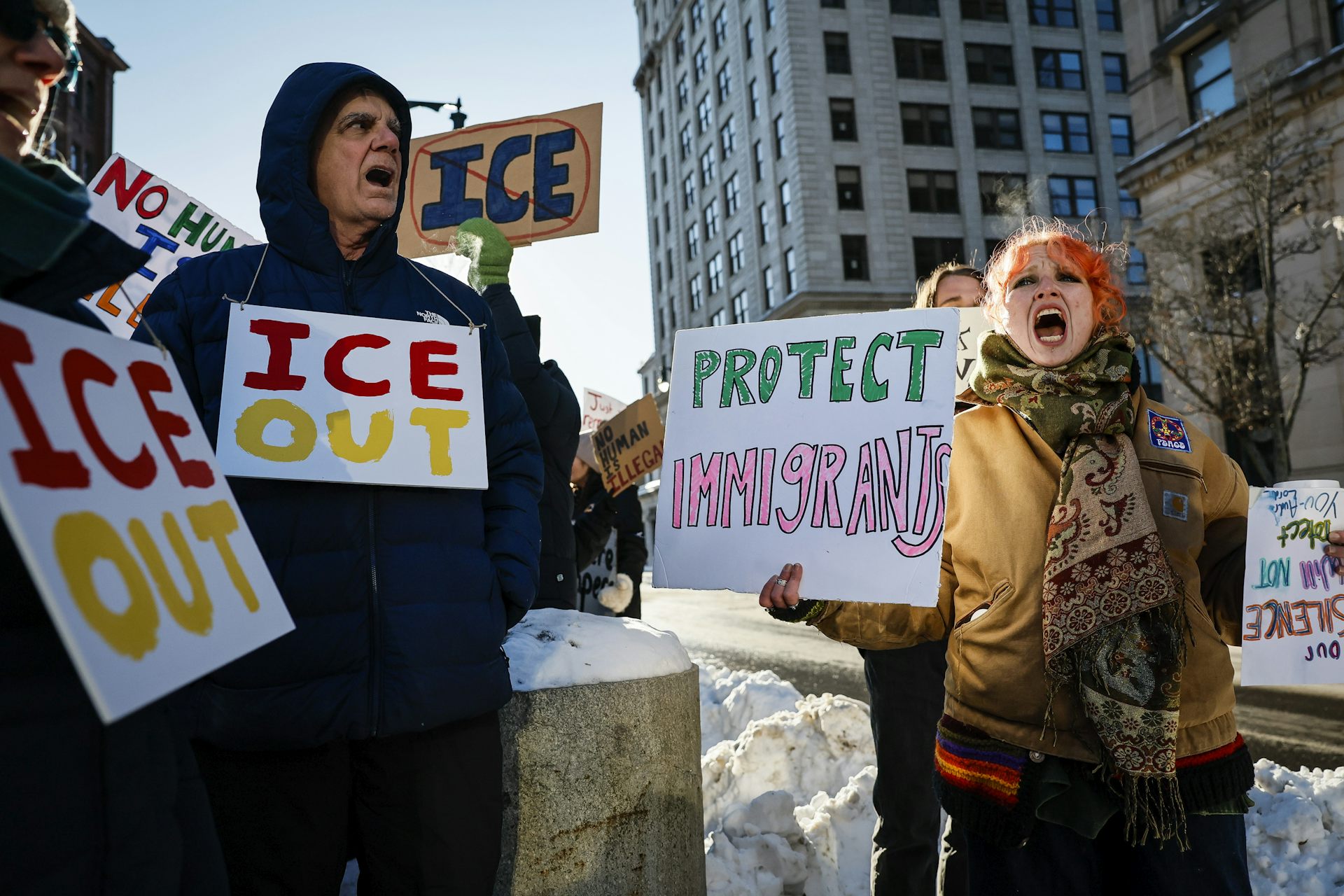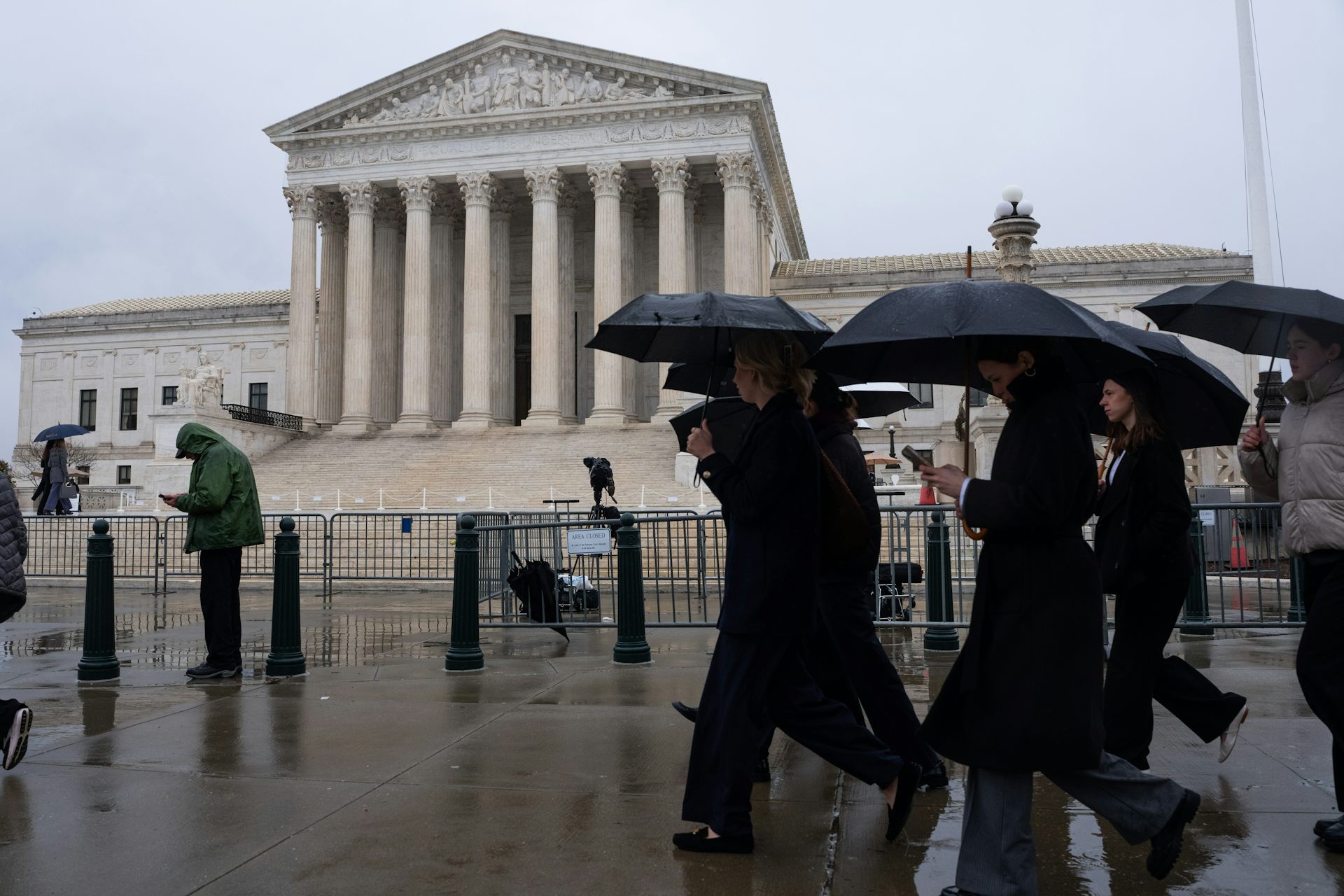While Republicans are downplaying abortion ahead of November, Democrats are leaning in on the issue
While the Republican Party platform has typically included anti-abortion language, this year’s platform is curiously silent on the issue.

Each major election over the past two years has prompted the refrain: “Abortion is on the ballot.” That is certainly true of the upcoming presidential election and down-ballot races in November 2024.
Sharp contrasts exist between Democratic presidential nominee Kamala Harris and Republican contender Donald Trump about reproductive rights.
Trump frequently touts his success in appointing three of the Supreme Court justices who voted in June 2022 to overturn the federal constitutional right to abortion.
Yet, as the election nears, Trump and others in the Republican Party have played down the abortion issue. Trump improbably claimed on Sept. 24, for example, that, if he’s elected, women “will no longer be thinking about abortion,” because the issue is now with the states.
No one mentioned abortion during the public speeches at the Republican National Convention in July. Abortion rights and other reproductive health issues, meanwhile, were a central theme at the Democratic National Convention in August.
The morning after the Democratic convention ended, Trump posted on Truth Social: “My Administration will be great for women and their reproductive rights.” He has also said that he would champion in vitro fertilization, or IVF, including requiring the government or insurers to pay for it – even though the president does not have authority to require this.
Presidents have a certain amount of power on abortion policy – for example, they can support or veto abortion-related bills, and they can issue executive actions to direct federal agencies’ policy priorities.
In short, the president does have power to make it much easier or harder for someone to get an abortion – or other kinds of reproductive health care.

Republican Party platform’s abortion omission
The Republican Party, until very recently, formally promoted anti-abortion policies.
Notably, every Republican Party platform from 1984 to 2016 called for an amendment to the U.S. Constitution that would ban abortions. The 2016 Republican platform mentioned abortion 35 times. In 2020, the Republican Party did not adopt a new platform.
Trump’s recent declarations of support for IVF and waffling on abortion access conflict with his previous actions, including selecting a running mate – JD Vance – who has strong anti-abortion views.
This mixed messaging might have something to do with the fact that laws banning abortion are not popular in the U.S. Approximately 65% of Americans oppose the Supreme Court’s 2022 Dobbs v. Jackson Women’s Health Organization ruling that overturned the right to an abortion. Just 34% of Americans said in May 2024 that they approve of this ruling.
Since 2022, voters have supported abortion rights in various state ballot initiatives that enshrined the right to abortion in their state constitutions.
The GOP’s 2024 platform, “Make America Great Again!” adopts a new tactic, only mentioning abortion once, committing the issue of abortion to the states.
The Republican platform instead has a provision captioned “Republicans will Protect and Defend a Vote of the People, from within the States, on the Issue of Life.” This key but opaque commitment states:
“We believe that the 14th Amendment to the Constitution of the United States guarantees that no person can be denied Life or Liberty without Due Process, and that the States are, therefore, free to pass Laws protecting those Rights. We will oppose Late Term Abortion, while supporting mothers and policies that advance Prenatal Care, access to Birth Control, and IVF (fertility treatments).”
The platform does not explain how a second Trump administration would oppose “late term” abortion, which is not a medical term and could refer to any point in pregnancy from the second trimester forward. During the September presidential debate, however, Trump repeated the false claim that Democrats are pushing for abortion “after birth” – which of course would not be an abortion but rather infanticide, which is a crime.
Further, language such as “no person can be denied Life …” and “the States are … free to pass Laws protecting those Rights” shows Republican support for constitutionally protecting the rights of fetuses.
So, abortion remains a policy priority for the Republican Party, despite the recent public approach.
Project 2025, for example, a policy document conceived by the Heritage Foundation and written primarily by former Trump administration officials, calls for enforcing the Comstock Act. This federal law from 1873 outlawed mailing “obscene” materials for unlawful purposes.
Today, abortion opponents believe that enforcing the Comstock Act could prevent mailing medication abortion to states that have abortion bans and restrictions. Project 2025 also calls for revoking Food and Drug Administration approval of mifepristone, one of two drugs used in medication abortions. These would be significant restrictions for abortion access.

Democratic Party platform’s focus on reproductive rights
The 2024 Democratic Party platform, which was written while President Joe Biden was still the nominee, takes a different approach.
The platform criticizes the Supreme Court’s Dobbs decision as “an extreme act,” with “devastating consequences nationwide.” While the 2024 Democratic platform is the first one to come after Dobbs, its commitment to reproductive freedom is consistent with prior Democratic policy plans.
The platform’s statement on “Reproductive Freedom” details steps the Biden-Harris administration took to try to restore reproductive access, including executive orders, like protecting the right to travel out of abortion-ban states for an abortion. This comes as some states with abortion bans are trying to make it harder for people to get abortions elsewhere.
It also lays out necessary further steps in a new term, including passing “national legislation to make Roe the law of the land again,” strengthening access to contraception and protecting the ability to freeze embryos and get IVF.
Both Biden and Harris have repeatedly promised to “codify” Roe v. Wade. As the Democratic presidential nominee, Harris has further elevated the issue of reproductive rights. This follows Harris’ work as vice president, when she spoke out early and often about Dobbs and the imperative of restoring abortion rights.
Harris has also spoken about reproductive justice, maternal health and Black women’s health in particular. A core part of Harris and vice presidential nominee Tim Walz’s “New Way Forward” campaign is to “restore and protect reproductive freedom”“ as part of safeguarding "our fundamental freedoms.”
State laws versus presidential power
While presidents have a certain amount of power over abortion policy, they are limited in several important ways when it comes to changing reproductive rights, especially at the state level.
Still, presidents can use their power in other ways, such as setting policy priorities for the Department of Justice and other federal agencies. If Trump is elected in November, he could, for example, instruct the secretary of the Department of Health and Human Services to rescind a policy that reminded hospitals to treat medical emergencies, including abortions where medically necessary, even when state law outlaws abortion.
A Harris administration, alternatively, could prioritize requiring hospitals to treat all medical emergencies, including when abortion is the necessary treatment. She could also ensure that private insurers are paying for reproductive care, including abortions, in accordance with existing laws.
The presidential position on reproductive rights will either increase or decrease the legal chaos, confusion and conflict that has grown post-Dobbs, which directly impacts the practice of medicine and patients’ lives.
Of course, House and Senate elections will also affect what the president can achieve and whether party platforms have any chance of becoming law. Yet, with Congress gridlocked, these platforms provide crucial insights into likely actions of the next administration.
Even though Trump has stated that abortion will be a “small issue” in the November elections, polls suggest otherwise. Abortion remains a prominent issue not only in the presidential election, but also in ballot initiatives that would protect access to abortion in 10 states – a record number since the Dobbs decision.
The authors do not work for, consult, own shares in or receive funding from any company or organization that would benefit from this article, and have disclosed no relevant affiliations beyond their academic appointment.
Read These Next
Crowdfunded generosity isn’t taxable – but IRS regulations haven’t kept up with the growth of mutual
Some Americans are discovering that monetary help they received from friends, neighbors or even strangers…
Colleges face a choice: Try to shape AI’s impact on learning, or be redefined by it
Colleges and universities are taking on different approaches to how their students are using AI –…
How Homeland Security’s subpoenas and databases of protesters threaten the ‘uninhibited, robust, and
It’s difficult to measure what is lost when an opinion is never voiced and impossible to catalogue…






